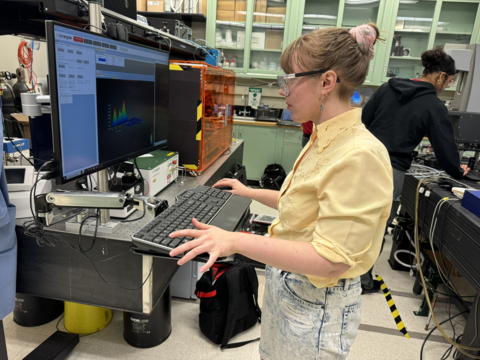Spotlight: NIST Researcher Julie Rieland Works Toward Recycling and Reusing Synthetic Plastics Used in Agriculture

Plastic is everywhere, even on farms. Farmers use plastic to cover and protect crops and help them retain water in the soil. Farmers also cover up bales of hay with plastic, so they look like giant marshmallows.
But what happens when these plastics are no longer needed? In some farming communities, permanent landfills may be too far away from farms or even nonexistent, so farmers may opt to burn the plastic they no longer need. There’s also not much research available on how much or little farmers are able to recycle plastic.
But NIST postdoctoral materials engineer Julie Rieland is researching how we might change that. And it starts with visiting farmers in Kansas, a state with more than 20 million acres (81,000 square kilometers) of crops. Julie is surveying farmers there about what’s keeping them from being able to recycle plastics.
“A lot of it falls less on the science and more on the social and the infrastructure side,” Julie said.
Julie is surveying farmers to see what types of plastics they use on their farms and what the barriers to recycling might be. She’s hoping to learn about how we can create a better recycling infrastructure that works for farmers and would be geared toward recycling the types of plastics used on farms.
She’s passionate about creating a society that relies less on plastic — and keeps plastic in use longer, rather than simply tossing it in the trash, or worse, burning it. Julie hopes her work will lead to more sustainable farms — and a healthier planet — for all of us.
Follow us on social media for more like this from all across NIST!

